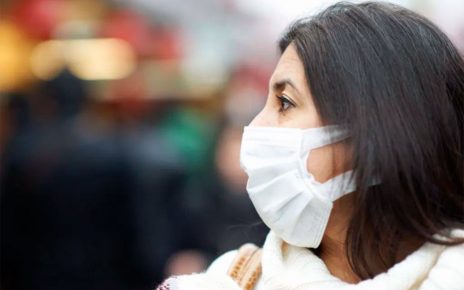What’s the link between cold weather and the common cold?
By Jamie Eske
Reviewed by Alana Biggers, MD, MPH
Rhinoviruses and the common cold
Many people associate cold weather with the common cold. While the weather is not directly responsible for making people sick, the viruses that cause colds may spread more easily in lower temperatures, and exposure to cold and dry air may adversely impact the body’s immune system. In this article, we examine the relationship between cold and wet weather and the common cold. We also cover some tips for preventing colds.
Research suggests that temperatures below 98.6°F may allow rhinoviruses to replicate more efficiently. Many viruses can cause the common cold. Rhinoviruses are the most common cause and are responsible for more than half of all colds and cold-like illnesses. Rhinovirus infections typically result in mild cold-like symptoms. However, rhinoviruses can also cause more severe illnesses, such as bronchitis and pneumonia, in people with weakened immune systems.
Effect of cold weather on viruses
Some research suggests that rhinoviruses may replicate more efficiently at temperatures lower than 37°C, or 98.6°F, which is the average core body temperature in humans. The temperature inside the nasal cavity is approximately 33°C (91.4°F), which may make it an ideal breeding ground for rhinoviruses.
Influenza viruses, which cause the flu, may also survive and spread more easily in cold and dry air. One study in guinea pigs suggests that the ideal temperature for the influenza virus to spread is 5°C (41°F).
Effect of cold weather on the immune system
Less vitamin D during winter months can affect the immune system.
Many researchers believe that exposure to cold weather can adversely affect a person’s immune response, making it harder for the body to fight off infections. Reasons for this may include:
Reduced vitamin D levels. During the winter months, many people get less vitamin D due to reduced sun exposure. Research suggests that vitamin D plays an essential role in maintaining the immune system.
Spending more time indoors. People tend to spend more time indoors during winter months, and viruses spread more when people are close to each other.
Lower temperatures may affect immune response. A 2015 study found that exposing airway cells taken from mice to lower temperatures decreased the immune response of the cells against a mouse-adapted rhinovirus.
Blood vessel narrowing. Breathing in cold and dry air causes the blood vessels in the upper respiratory tract to narrow to conserve heat. This may prevent white blood cells from reaching the mucous membrane, making it harder for the body to fight off germs.
Prevention
Some ways to avoid getting sick during the winter include:
-Taking vitamin D supplements or eating foods that are high in vitamin D, such as fatty fish, mushrooms, and eggs
-Getting plenty of sleep
-Staying hydrated
-Washing hands regularly
-Always sneezing and coughing into clean tissues; if no tissue is available, it is better to use an elbow rather than the hands.
-Not sharing foods, drinks, crockery, and utensils with people who have a cold or the flu





